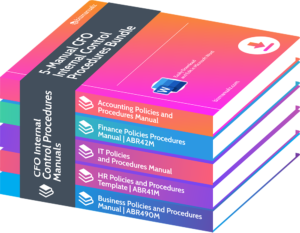What Should a CFO Know About Financial Management Strategies?

Attention CFOs! Are you struggling to keep your company’s financial strategies in check? In today’s ever-changing business landscape, having a solid understanding of financial management strategies is crucial for the success of any organization. In this article, we will dive into the key things that every CFO should know about financial management strategies to drive growth and stability. Don’t miss out, this information will be vital for your role as a CFO! What Should a CFO Know About Financial Management Strategies?
What is a CFO?
A Chief Financial Officer (CFO) is a top-level executive responsible for overseeing a company’s financial operations and strategy. They play a crucial role in decision-making by providing financial insights to guide business strategies and drive growth. This includes managing financial planning, budgeting, reporting, and risk management.
A CFO works closely with other executives and stakeholders to ensure financial stability and profitability. Their knowledge in accounting principles, financial analysis, and regulatory compliance is essential in effectively navigating the complexities of financial management. Strong leadership, communication, and analytical skills are also necessary for a CFO to contribute to the financial success of a company.
What are the Responsibilities of a CFO?
The duties of a CFO include:
- Overseeing financial operations
- Analyzing financial data
- Developing financial strategies
- Ensuring regulatory compliance
They are accountable for managing budgets, forecasting financial performance, and providing valuable financial insights to support decision-making. In addition, CFOs play a critical role in managing risk, guiding investments, and establishing financial policies and procedures. Their responsibilities also involve managing relationships with stakeholders, such as investors, auditors, and financial institutions.
To excel in their position, CFOs should possess:
- Strong financial knowledge
- Leadership skills
- Effective communication abilities
Overall, a CFO is an essential contributor to an organization’s financial management and success.
What is Financial Management?
Financial management is the process of strategically planning, organizing, directing, and controlling financial activities within an organization. It entails making informed decisions about resource allocation, managing cash flow, evaluating financial risks, and maximizing profitability. The main objective of financial management is to ensure the long-term financial stability and growth of the organization.
CFOs play a critical role in overseeing financial management strategies, analyzing financial data, and providing strategic recommendations. They must possess a thorough understanding of financial principles, regulations, and market trends to effectively guide the organization’s financial decisions.
In summary, financial management is crucial for the success and sustainability of any business.
What are the Key Components of Financial Management?
The key components of financial management include:
- Budgeting and forecasting which involve creating financial plans and predicting future outcomes.
- Cash management which focuses on managing cash flow and liquidity.
- Risk management which involves identifying and mitigating financial risks.
- Cost management which aims to control and optimize expenses.
- Capital management which focuses on managing a company’s capital structure and investments.
These components are crucial for successful financial management and can aid businesses in making well-informed decisions and attaining financial stability.
What are the Different CFO Financial Management Strategies?
As a Chief Financial Officer (CFO), it is crucial to have a strong understanding of different financial management strategies. These strategies are essential for effectively managing a company’s finances and achieving financial goals. In this section, we will discuss the various financial management strategies that a CFO should be familiar with.
From cash management to capital management, each strategy plays a key role in maintaining the financial health of a business. Let’s dive into the details and explore the importance of each approach.
1. Cash Management
Cash management is an essential aspect of financial management for any organization. It involves strategic planning and control of cash inflows and outflows to ensure optimal cash flow and liquidity.
To effectively manage cash, consider the following steps:
- Create a cash flow forecast to anticipate cash needs and identify potential shortfalls.
- Implement strict procedures for cash collection to minimize payment delays from customers.
- Optimize cash disbursement by negotiating favorable payment terms with suppliers and vendors.
- Establish policies for cash reserves to provide a buffer for unforeseen expenses or emergencies.
- Utilize technology and automation tools to streamline cash management processes and reduce manual errors.
2. Budgeting and Forecasting
Budgeting and forecasting are crucial aspects of financial management for a CFO. These steps are vital in effectively planning and making decisions for an organization’s financial future.
- Estimate Revenue: Analyze historical data and market trends to project future income.
- Identify Expenses: Compile and categorize all expenses, including fixed and variable costs.
- Create Budget: Set financial targets by allocating resources to different departments and activities.
- Monitor Budget: Regularly review actual expenses against the budget to identify any variances.
- Forecast Cash Flow: Predict the inflow and outflow of cash to manage liquidity effectively.
- Adjust Budget: Make necessary adjustments to the budget based on changing circumstances or unexpected events.
3. Risk Management
Risk management is a crucial component of financial management. To effectively manage risks, CFOs should follow a systematic approach. Here are the steps involved in Risk Management:
- Identify risks: Assess potential risks that could impact the organization’s financial stability.
- Analyze risks: Evaluate the probability and potential impact of each identified risk.
- Develop risk mitigation strategies: Create plans to minimize or eliminate identified risks.
- Implement risk management strategies: Put the strategies into action, ensuring all relevant stakeholders are involved.
- Monitor and review: Continuously monitor the effectiveness of the risk management strategies and review them regularly.
- Adjust as needed: Make necessary adjustments to the strategies based on changes in the business environment or new risks that arise.
By following these steps, CFOs can proactively manage risks and safeguard the financial well-being of the organization.
4. Cost Management
Cost management is an essential aspect of financial management that involves managing and decreasing expenses within an organization. To effectively control costs, CFOs should follow these steps:
- Identify and analyze all costs incurred by the organization.
- Set clear cost reduction goals and targets.
- Implement cost control strategies, such as negotiating better vendor contracts or optimizing operational processes.
- Regularly monitor and review expenses to ensure they align with the organization’s budget and financial objectives.
- Continuously evaluate opportunities for cost-saving and identify areas for improvement.
Fact: Implementing cost management strategies can help organizations increase profitability and improve financial performance.
5. Capital Management
Capital management refers to the strategic allocation and utilization of financial resources to maximize value and achieve long-term goals. It involves various steps, including:
- Evaluating Capital Needs: Assess the company’s financial requirements and determine the amount of capital needed for operations, investments, and growth.
- Sourcing Capital: Identify and secure funding from various sources, such as equity investors, debt financing, or retained earnings.
- Capital Budgeting: Allocate capital to different projects or investments based on their potential return and risk, ensuring optimal utilization.
- Monitoring and Control: Regularly track and analyze the performance of capital investments, ensuring they align with the company’s objectives.
- Optimizing Capital Structure: Determine the right mix of debt and equity financing to minimize costs and maximize returns.
A true story highlighting the importance of effective capital management involves a successful tech startup. By carefully managing their capital and making strategic investments, they were able to expand their operations, attract more investors, and ultimately achieve significant growth and profitability.
What are the Benefits of Effective Financial Management?
As a CFO, understanding the importance of effective financial management strategies is crucial for the success of a company. Let’s dive into the benefits of implementing these strategies and how they can positively impact a company’s financial health.
From improved financial performance to reduced financial risks, we’ll explore the various advantages that come with effective financial management. By the end of this section, you’ll have a better understanding of why financial management is a key component of a successful business.
1. Improved Financial Performance
Enhancing financial performance is essential for the success of any organization. This goal can be achieved by implementing the following key steps:
- Analyze financial data to identify areas of improvement and potential risks.
- Create and monitor budgets to ensure efficient allocation of resources.
- Implement strategies to increase revenue, such as diversifying income streams or expanding into new markets.
- Reduce costs by optimizing processes, negotiating better supplier contracts, or implementing cost-saving measures.
- Improve cash flow management by implementing effective invoicing and payment collection processes.
By following these steps, organizations can improve their financial performance, leading to increased profitability and long-term sustainability.
2. Better Decision-Making
Better decision-making is a crucial aspect of effective financial management. Here are some steps to enhance decision-making as a CFO:
- Collect and analyze relevant financial data to gain insights.
- Consider various scenarios and outcomes before making a decision.
- Evaluate potential risks and rewards associated with each decision.
- Consult with key stakeholders and experts to gather different perspectives.
- Use financial models and projections to assess the impact of decisions.
- Ensure transparency and accountability in the decision-making process.
- Continuously monitor and review the outcomes of decisions to make necessary adjustments.
By following these steps, CFOs can make informed decisions that align with the organization’s goals and contribute to its financial success.
3. Increased Cash Flow
In order to achieve increased cash flow, CFOs can take the following steps:
- Streamline accounts receivable and payable processes to ensure timely payments and collections.
- Implement cost reduction measures to optimize expenses and improve profitability.
- Explore opportunities for working capital optimization, such as inventory management and supplier negotiations.
- Improve cash flow forecasting accuracy to better anticipate and plan for future cash needs.
- Implement effective credit and risk management strategies to minimize bad debt and financial losses.
Pro-tip: Regularly monitor and analyze key financial metrics, such as cash conversion cycle and operating cash flow, to identify areas for improvement and drive sustainable cash flow growth.
4. Reduced Financial Risks
Reducing financial risks is crucial for the success of any organization. Here are steps to achieve this:
- Perform a thorough risk assessment to identify potential financial risks.
- Implement internal controls to mitigate identified risks.
- Diversify investments to spread risk across different asset classes.
- Create a contingency plan to prepare for unforeseen financial challenges, thus reducing financial risks.
- Regularly review and update risk management strategies to adapt to changing circumstances.
In 1929, the Wall Street Crash caused a severe economic downturn, highlighting the importance of managing financial risks. This event led to the implementation of regulations and oversight to prevent future crises. Today, organizations continue to prioritize reducing financial risks, as it can lead to stability and long-term growth.
What are the Common Challenges in Financial Management?
As a CFO, you are responsible for overseeing the financial management strategies of your company. However, there are common challenges that can hinder the success of these strategies.
In this section, we will discuss the top four challenges that CFOs face in financial management. From the lack of accurate data to the ever-changing regulations and compliance, we will delve into the complexities of managing finances in today’s business landscape.
1. Lack of Accurate Data
The absence of precise data in financial management can present significant challenges for CFOs. To address this issue, here are steps to consider:
- Implement data governance practices to ensure data accuracy and integrity.
- Invest in robust data management systems and tools to collect, store, and analyze financial data.
- Regularly perform data audits to identify and rectify any inaccuracies or inconsistencies.
- Establish data validation processes to verify the accuracy of financial information before making decisions.
- Train and educate employees on the importance of data accuracy and provide them with the necessary tools and resources.
To mitigate the issue of lacking accurate data, CFOs should prioritize data quality and invest in the appropriate technologies and processes. By doing so, they can make well-informed financial decisions and drive better business outcomes.
2. Inefficient Systems and Processes
Inefficient systems and processes can greatly impede effective financial management. These inefficiencies can manifest in different forms, including outdated technology, manual data entry, lack of automation, and ineffective communication channels. These issues often result in delays, errors, and a lack of real-time visibility into financial data.
To address these concerns, CFOs must implement streamlined processes, utilize technology solutions, and foster a culture of continuous improvement. By improving the efficiency of systems and processes, CFOs can guarantee precise and timely financial information, enhance decision-making, and drive overall organizational performance.
3. Changing Regulations and Compliance
Adhering to the constantly changing regulations and compliance requirements is crucial for effective financial management. To navigate this challenge, here are some steps to follow:
- Stay updated: It is important to regularly monitor any changes in regulations by staying updated through industry associations, subscribing to newsletters, and attending seminars.
- Review policies: It is necessary to assess existing policies and procedures to ensure they are in line with the latest regulations.
- Educate employees: Train and educate employees on the new compliance requirements to foster a culture of compliance within the organization.
- Implement controls: Establish internal controls to monitor and enforce compliance with the regulations.
- Engage external experts: Seek advice from legal and compliance professionals to ensure full compliance.
Pro-tip: Consider establishing a dedicated compliance team to streamline the process and ensure ongoing adherence to regulations.
4. Economic Uncertainty
Economic uncertainty poses a major challenge in the field of financial management. It encompasses unpredictable economic circumstances that can have a significant impact on the financial stability and performance of businesses. In times of economic uncertainty, companies may experience a decrease in consumer spending, volatile financial markets, and fluctuating interest rates.
This uncertainty makes it difficult for CFOs to accurately forecast finances and make strategic decisions. Therefore, it is crucial for CFOs to develop contingency plans, closely monitor market trends, and adapt financial strategies to mitigate the effects of economic uncertainty. By doing so, CFOs can guide their organizations through these challenging times and maintain financial stability.
What Skills Should a CFO Possess for Effective Financial Management?
As a CFO, it is crucial to have a diverse skill set in order to effectively manage financial strategies for a company. In this section, we will explore the key skills that a CFO should possess to excel in financial management.
These essential skills include financial analysis, strategic planning, communication and negotiation, and leadership and team management. Let’s delve into each of these skills and understand their importance in the role of a CFO.
1. Financial Analysis
Financial analysis is a crucial aspect of effective financial management. It involves evaluating financial data and performance to gain insights into the financial health of a company. Here are the steps involved in conducting financial analysis:
- Gather financial statements, including the balance sheet, income statement, and cash flow statement.
- Analyze key financial ratios like profitability, liquidity, and solvency ratios.
- Assess trends and patterns in financial data to identify strengths and weaknesses.
- Compare financial performance to industry benchmarks and competitors.
- Conduct a sensitivity analysis to understand the impact of different variables on financial outcomes.
Fact: Financial analysis helps organizations make informed decisions and identify areas for improvement.
2. Strategic Planning
Strategic planning is an essential responsibility of a CFO in effective financial management. Here are the steps involved:
- Evaluate the current financial position and performance of the company.
- Set clear financial goals and objectives aligned with the overall business strategy, as a part of the strategic planning process.
- Identify key financial drivers and metrics to track progress towards goals, as a part of the strategic planning process.
- Analyze market trends, competition, and industry dynamics to inform financial strategies, as a part of the strategic planning process.
- Develop a strategic financial plan outlining actions and initiatives to achieve goals, as a part of the strategic planning process.
- Create budgets and forecasts that support the strategic plan, as a part of the strategic planning process.
- Implement financial controls and performance measurement systems, as a part of the strategic planning process.
- Monitor and evaluate financial performance regularly, as a part of the strategic planning process.
- Adjust strategies as needed based on performance and changing business conditions, as a part of the strategic planning process.
By following these steps, CFOs can effectively contribute to the long-term success and growth of the organization.
3. Communication and Negotiation
Effective communication and negotiation are essential skills for a CFO to effectively manage financial matters.
- Establishing clear communication channels within the organization is crucial.
- Regularly communicating financial goals, strategies, and performance updates to the executive team and stakeholders is vital.
- Engaging in active listening and seeking feedback to understand concerns and address them effectively is important.
- Building strong relationships with banks, investors, and other external parties through effective negotiation is key.
- Collaborating with other departments to align financial objectives and ensure smooth operations is crucial.
Fact: According to a study, CFOs who excel in communication and negotiation skills are more likely to achieve positive financial outcomes for their organizations.
4. Leadership and Team Management
Leadership and team management are crucial skills for a CFO to possess in order to effectively manage finances.
- Establishing a clear vision and goals for the finance team is essential.
- Develop and communicate a strong organizational culture that prioritizes collaboration and accountability.
- Delegate responsibilities to team members based on their individual strengths and expertise.
- Provide ongoing coaching and support to aid in the growth and development of team members.
- Encourage open and honest communication within the team to foster a positive work environment.
Pro-tip: Boost team morale and productivity by recognizing and rewarding outstanding performance.
CFO Financial Management Strategies
CFO financial management strategies means the CFO is in charge of managing financial management plans, evaluating financial information, and making strategic recommendations, CFOs are indispensable. To effectively guide the organization’s financial decisions, they must have a thorough understanding of market trends, regulations, and financial principles. In conclusion, sound financial management is essential to any company’s growth and viability.
Frequently Asked Questions

What is the role of a CFO in financial management strategies?
As the chief financial officer of a company, it is crucial to understand and implement effective financial management strategies to ensure the long-term success of the business. This includes overseeing budgeting, forecasting, and financial planning, as well as managing financial risks and making strategic investment decisions.
What are some common financial management strategies that a CFO should be familiar with?
Some common financial management strategies include cash flow management, cost reduction, financial forecasting, risk management, and investment analysis. A CFO should have a strong understanding of these strategies and be able to determine which ones are most appropriate for their company’s financial goals.
How can a CFO effectively manage financial risks?
A CFO can effectively manage financial risks by identifying potential risks, implementing risk management strategies, and regularly monitoring and evaluating the company’s financial performance. This may involve diversifying investments, creating contingency plans, and staying up-to-date on market trends and changes.
Why is it important for a CFO to have a thorough understanding of budgeting and financial planning?
Budgeting and financial planning are key components of financial management strategies. A CFO needs to have a thorough understanding of these processes to accurately forecast and manage the company’s financial resources. This also allows the CFO to make informed decisions on budget allocations and investment opportunities.
How can a CFO use financial management strategies to drive business growth?
By implementing effective financial management strategies, a CFO can help drive business growth by ensuring the company has a solid financial foundation and making strategic investments. This may involve identifying areas for cost reduction, creating growth-focused budgets, and developing long-term financial plans.
What are some tools and resources that can help a CFO in financial management strategies?
There are various tools and resources that a CFO can use to help with financial management strategies, such as financial analytics software, market research reports, and financial consultants. It is important for a CFO to stay informed and utilize these resources to make informed decisions and effectively manage the company’s finances.
















Leave a Reply